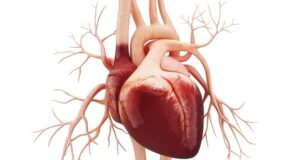New study reveals how swapping ultra-processed foods for minimally processed ones could cut risks of death from major diseases, highlighting the life-saving potential of better dietary choices.
 Study: Associations between degree of food processing and all-cause and cause-specific mortality: a multicentre prospective cohort analysis in 9 European countries. Image Credit: Prostock-studio / Shutterstock
Study: Associations between degree of food processing and all-cause and cause-specific mortality: a multicentre prospective cohort analysis in 9 European countries. Image Credit: Prostock-studio / Shutterstock
In a recent study published in The Lancet Regional Health – Europe, a team of scientists investigated the relationship between food processing levels and mortality, with a focus on the impacts of ultra-processed foods.
Using data from a large European cohort, they examined how consumption patterns of processed and unprocessed foods influence overall mortality and specific causes such as circulatory diseases.
Background
Dietary habits in modern societies have shifted dramatically, and in many regions of the world, ultra-processed foods have replaced traditional, minimally processed foods.
Ultra-processed foods now account for a substantial portion of the daily energy intake, particularly in high-income countries, where they constitute 25% to 60% of the total calories.
Increasing research has also linked these foods to adverse health outcomes, including increased risks of cancer, cardiovascular disease, type 2 diabetes, and premature death.
Several large-scale studies and meta-analyses have confirmed these associations, but much of the focus has been on common causes of mortality. The impact of ultra-processed foods on other causes, such as digestive or neurodegenerative diseases, remains understudied.
Furthermore, few studies have examined whether substituting ultra-processed foods with unprocessed or minimally processed foods (Nova 1) can decrease mortality risks.
Addressing these gaps is crucial to understanding the broader health implications of ultra-processed food consumption and informing dietary guidelines to promote healthier eating practices globally.
About the study
The present study analyzed data from the European Prospective Investigation into Cancer and Nutrition (EPIC) cohort, which consists of 428,728 participants from multiple European countries, excluding Greece, due to the unavailability of data.
The participants were followed for an average of 15.9 years, during which time detailed information was collected on factors such as dietary intake, mortality, and health outcomes.
The study excluded individuals with prior diagnoses of cancer, cardiovascular diseases, stroke, angina, or diabetes at baseline, aiming to minimize reverse causality.
Dietary intake was assessed using validated food-frequency questionnaires tailored to each country. Foods were categorized into four groups based on the Nova classification system, namely, minimally processed or unprocessed foods, processed culinary ingredients, processed foods, and ultra-processed foods. The analysis also accounted for factors such as the percentage contribution of each food group to total energy intake.
The team sourced mortality data, including causes of death, from national records and coded them according to the International Classification of Diseases (ICD-10).
The primary outcomes analyzed were all-cause mortality and specific causes, which included circulatory diseases, cancer, digestive diseases, Alzheimer’s disease, and Parkinson’s disease.
Statistical methods such as Cox proportional hazards regression models were used to evaluate the associations between food processing levels and mortality. The substitution models were constructed to evaluate the effect of replacing 10% of ultra-processed food consumption with unprocessed or minimally processed foods while keeping total energy intake constant.
The models were adjusted for variables such as age, sex, education, marital status, physical activity, smoking habits, alcohol consumption, and adherence to a Mediterranean diet.
Moreover, sensitivity analyses were performed, including excluding deaths within two years of recruitment and recalibrating food classifications to ensure robustness.
Results
The findings indicated that higher consumption of ultra-processed foods was linked to increased risks of all-cause and specific-cause mortality.
Notably, elevated ultra-processed food intake was significantly associated with greater mortality from circulatory diseases, including ischemic heart disease and cerebrovascular conditions, as well as digestive diseases and Parkinson’s disease.
For each standard deviation increase in the proportion of ultra-processed foods consumed, the researchers observed that the risk of circulatory disease-related death rose by 9% (HR: 1.09, 95% CI: 1.07–1.12), while digestive disease-related mortality increased by 12% (HR: 1.12, 95% CI: 1.05–1.20).
Furthermore, a striking 23% higher risk (HR: 1.23, 95% CI: 1.06–1.42) was observed for deaths due to Parkinson’s disease. However, the study found no significant associations (HR: 1.00) between ultra-processed food consumption and cancer or Alzheimer’s disease mortality.
The researchers also explored the effects of dietary substitution and found that replacing just 10% of ultra-processed foods with minimally processed or unprocessed foods was associated with significant reductions in mortality risks.
Specifically, such substitutions lowered the risk of all-cause mortality and deaths from circulatory and digestive diseases, with reductions of 6% to 9% depending on the food group replaced.
These findings underline the potential benefits of dietary interventions focused on reducing ultra-processed food consumption.
Conclusions
In summary, the study highlighted the strong association between ultra-processed food consumption and mortality, particularly from circulatory and digestive diseases, as well as from Parkinson’s disease.
The findings also suggested that dietary recommendations promoting unprocessed or minimally processed foods could substantially lower mortality risks.
These results emphasized the importance of dietary patterns in public health and provided evidence supporting policies to reduce ultra-processed food intake globally. The authors also noted that limitations such as potential misclassification in food categorization and changes in dietary behaviors during follow-up may lead to an underestimation of the observed associations.
Journal reference:
- González-Gil, E. M., Matta, M., Berstein, M., Cairat, M., Nicolas, G., Blanco, J., Kliemann, N., Levy, B., Rauber, F., Jacobs, I., Nahas, A., Koc, C. E., Vamos, E. P., Chang, K., Yammine, Sahar G, Millett, C., Touvier, M., Gabriela, M., Tsilidis, Konstantinos K, & Heath, A. K. (2025). Associations between degree of food processing and all-cause and cause-specific mortality: a multicentre prospective cohort analysis in 9 European countries. The Lancet Regional Health – Europe, 50. DOI:10.1016/j.lanepe.2024.101208, https://www.thelancet.com/journals/lanepe/article/PIIS2666-7762(24)00377-6/fulltext




